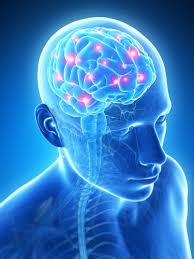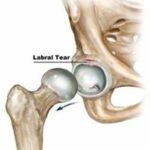We understand how scary and frustrating it is when problems with the brain or nerves affect your daily life. Whether it’s difficulty moving or weakness, it can feel lonely and hard. That’s why our neuro physiotherapy in Delhi is here to support you with gentle care and real understanding. Our experienced physiotherapist in Delhi works closely with you, knowing every small step matters in your journey to recovery.
If you are searching for neuro physiotherapy near me or physiotherapy in Dwarka, remember, you don’t have to face this alone. We come to you with treatments designed to help you regain strength, balance, and hope. Together, we will work towards bringing back the freedom to live your life fully.
Book Your Appointment Now
What is Neuro Physiotherapy
In neurological conditions, physiotherapists mainly deal with people with movement and function disorders that have manifested from disorders of the body’s nervous and neuromuscular system.
The main complaints of such patients are muscular weakness, balance and coordination loss, uncontrolled movements pertaining to increased muscle tone and tremors, functional loss, and sensory issues.
Neurological conditions treated by physiotherapists:
- Functional Neurological Disorders
- Stroke, CVA or TIA
- Spinal cord and traumatic brain injuries, such as :
- Paraplegia;
- Spina Bifida;
- Gullianne Barre Syndrome (GBS)
- Poliomyelitis
- Multiple sclerosis
- Parkinson’s disease
- ALS (amyotrophic lateral sclerosis), TM (transverse myelitis), MG (Myasthenia gravis)
- Muscular dystrophies
- Poliomyelitis
- Myelopathies
In cases of acute neurological conditions like stroke, spinal injury, or traumatic brain injury, a patient needs immediate medical attention. Such patients are initially treated at the hospital. Once the patient is stabilized through initial medical treatment, the neurologist will recommend physiotherapy treatment while the patient stays in the hospital. The Physiotherapist will undertake a comprehensive assessment of the patient’s cognition, perception, strength, coordination, and balance and then will design a treatment program according to the needs of the patient.
Treatment
Depending on the findings of the patient, the Neuro Physiotherapy may include:
- Passive or Active assisted ROM Exercises: if the patient is unable or slightly able to perform the arm and leg movements.
- Positioning / splinting: the limbs are positioned in correct positions to prevent tightening of muscles in inappropriate positions. It also helps in preventing bed sores.
- Breathing and Circulation Exercises: Deep breathing exercises/segmental breathing exercises help maintain the airway and prevent respiratory complications and chest infections. Ankle toe pumps, elevation, and gentle passive movements reduce the risk of DVTs and improve circulation.
- Teaching transfer techniques: In neurophysiotherapy, the physiotherapist trains the patient in bed mobility and easy transfer techniques to move safely in bed, sit up, stand, and walk.
- Mobility Aids: Physiotherapists advise and instruct the patient on how to safely use a walking frame or other walking aids as required.
- Planning necessary changes at home: physiotherapist takes a brief of home restraints and environment and advises necessary changes and equipment that may be required at home after discharge.
- Exercise: exercises to build strength, endurance, coordination, and balance.
Comprehensive Rehabilitation and Functional Recovery Approach

- Following the discharge from the hospital, the rehabilitation may continue at a clinic, a community-based rehabilitation center, or at home as the patient’s condition demands.
- The therapist and family members work in close coordination to achieve the desired result.
- The exercises are mainly to reduce the tone of hypertonic muscles, which may include inhibitory techniques and stretching exercises.
- Facilitating the underworking muscles through facilitatory techniques, PNF, and reinforcement techniques.
- Muscle stimulators can be used in early stages for weak muscles.
- A holistic treatment approach considering the patient as a whole, incorporating exercises into day-to-day living activities.
- A few patients may require additional support, high levels of care, and specialized equipment.
- Patients with cerebellar involvement present with balance and coordination problems.
- The fear of getting off the bed and difficulty in coordinated movement in any activity lets down the patient, affecting the morale of the patient.
- The therapist has to help uplift the morale to achieve maximum cooperation from the patient while exercising.
- Frankel exercises for balance and coordination are specially designed exercises to address the problem and, over the years, have proved to be the most reliable exercises for the problem.
PAIN FREE PHYSIOTHERAPY CLINIC helps you achieve the best possible level of fitness in neurological conditions. Contact us to get in touch with an expert.






